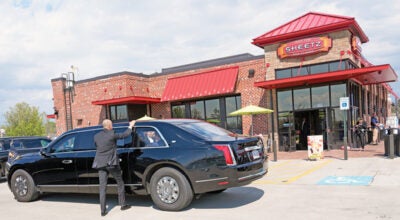Levies won’t be on ballot
Published 9:38 am Friday, August 2, 2013
There will be no levies to fund emergency services on the ballot in November.
At their Thursday meeting Commissioner Les Boggs did not second a motion by Commission President Bill Pratt to have the voters decide if they wanted a 2-mill levy to fund Lawrence County EMS and 1.25-mill levy to fund 911 dispatching. The commissioners are facing a Wednesday deadline with the board of elections.
Commissioner Freddie Hayes was not at the meeting but has publicly opposed the levies.
The levies were part of the Lawrence County Public Safety Funding Plan that was developed over the summer following discussions with Lawrence County Sheriff Jeff Lawless, EMS Director Buddy Fry and Lawrence County Auditor Jason Stephens.
The 2-mill levy would have brought in $1.6 million to the EMS to supplement the $2.3 million from patient payments to provide a budget of between $3.5 and $4 million over the next five years.
The 1.25 levy would have meant $1 million for 911 dispatching to supplement a proposed budget of between $942,500 to $1 million over the next five years that would also fund a third dispatcher.
Currently there are only two dispatchers on a shift to handle police, fire and ambulance calls.
With his voice breaking at times and twice stopping to compose himself, Pratt said before making the motion, “We have emergency services that need funds. This isn’t going to happen. It is very discouraging for me. I stuck my neck out for people like (paramedic) Bill Elliott and that fellow who had cardiac arrest.”
Elliott, who was in the commission audience, had earlier that morning responded to an EMS call of a man suffering a heart attack.
Pratt referenced an expected increase of $1 million in insurance premiums because of the number of claims filed this year. Right now the county pays $3,976,089 for non-union employees. There is another insurance cost for Teamster employees.
“The county is going down a road it cannot recover from,” Pratt said. “I don’t like paying taxes. … I (made) a resolution to the county to do the right thing. The voters should have the chance to decide. Today is a defining moment.”
Boggs countered by saying he has always supported emergency services citing his being on commission when the county EMS was formed following the dissolution of the decades-old Southeast Ohio Emergency Medical Services.
“The (current) sheriff and 911 have received more funds in the history of Lawrence County,” Boggs said.
However, for the commission to put the levies on the ballot would be a violation of its own policy, Boggs said, citing the Initiative Petition Policy created in 2007.
“For any proposed levy to be endorsed by the commissioners, the circulators must have an initiative petition,” the policy states.
The petition must be signed by voters and contain signatures of 3 percent of those voting in the previous gubernatorial race.
Pratt countered that the policy was vague and only referred to gaining the commissioners’ endorsement of a levy.
“The commission would not put a levy on the ballot without seeing the seriousness from the petitioners,” Boggs said. “I first heard about the plan 10 days ago. It is a last-minute plan without input from the taxpayers. Food prices are going up, gas prices. People say ‘I can’t afford it.’
“I don’t believe in scare tactics. Will it impact if our insurance goes up? We will come up with a plan regardless. … If the people want it voted on, bring in the petitions.”
If citizens wanted to fund the emergency services, they could present those petitions with the required signatures to the commissioners requesting the levies be put on the ballot. However, the commissioners could still turn it down.
Lawless and Fry were in the audience during the meeting but did not speak publicly about the levies at that time.
However, both have said dedicated funding sources were needed for their agencies.
“I am concerned that there is not funding for emergency services,” Lawless said after the meeting. “How do we continue to provide the services we currently have? I am hopeful there are ways and means to keep all services current and better in the future.”
Fry said it is the commissioners’ decision on how the EMS is funded beyond the revenue from patients.
“But I would still like to have a dedicated known source of funding so we didn’t have to guess at it each year or wait until November to know what we will have for the following year,” he said.
For Pratt, not allowing the voters the opportunity to decide the emergency funding was a disappointment, he said.
“For all we know 70 percent might be in favor of the levies,” he said. “Now we have no way of determining how they feel about these services. The commissioners have decided.”





